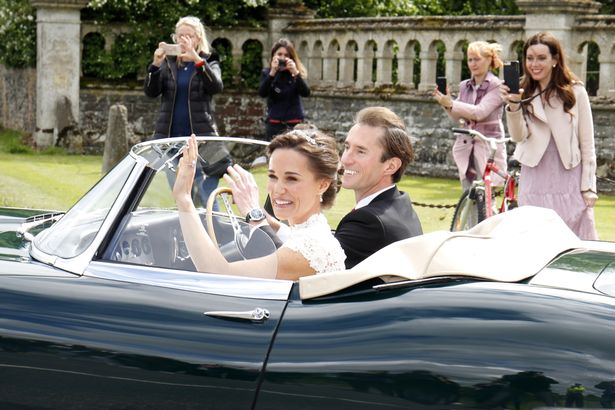Our appeal dedicated to Nainika Tikoo

This blog article is dedicated to Nainika Tikoo who sadly passed away on 25 May 2017 as a result of anaphylaxis owing to an allergic reaction to blackberries. We have noticed a number of wedding and event caterers who regularly fail to comply with their legal food labelling obligations. We hope the below provides some guidance. If you are an events caterer, wedding planner or couple, we are offering free food labelling consultations and best practice advice to ensure your next event is compliant with the relevant legislation. All we ask is that a donation is made to the allergy awareness campaign set up by Nainika’s parents (Lakshmi Kaul and Vinod Tikoo) (www.justgiving.com/crowdfunding/nainika)
Facing the facts
It is shocking to see how many caterers at weddings and events, fail in their legal duty in providing information about allergenic ingredients in the food that they serve to guests. This has the potential to cause serious harm. We have put together some tips to assist caterers with their obligations.
In the UK, it is estimated that 1-2% of adults and 5-8% of children have a food allergy. This equates to around 2 million people living in the UK with a food allergy. This figure does not include the number of people who have food intolerances, which would in turn substantially increase the number of people who are impacted if they have a food allergy or intolerance.
About an allergic reaction?
An allergic reaction can be produced by a tiny amount of food ingredient that a person is sensitive to. Symptoms of an allergic reaction can range from mild symptoms such as rashes to more severe symptoms such as vomiting, diarrhoea and on occasions anaphylaxis. Around ten people in the UK die from allergic reactions to food every year.
What can be done?
There is no cure for food allergy, therefore the only way to manage the condition is to avoid the food that makes the person ill. When you are attending events (including weddings) it is important that caterers provide clear and accurate information about allergenic ingredients in their products. Food Information Regulations 2014 introduces new rules for food businesses relating to the labelling and provision of allergen information.
What ingredients must a caterer declare to consumers?
The following ingredients must be declared to a consumer if they are added to food (the most common ones are in bold):
- Cereals containing gluten namely wheat (such as spelt and Khorasan wheat), rye, barley, oats and their hybridised strains and product thereof, except:
- Wheat based glucose syrups including dextrose
- Wheat based maltodextrins
- Glucose syrups on barley
- Cereals used for making alcoholic distillates including ethyl alcohol of agricultural origin.
- Crustaceans and products thereof (for example prawns, lobster, crabs and crayfish).
- Egg and products thereof.
- Fish and products thereof, except;
- Fish gelatine used as carrier for vitamin or carotenoid preparations.
- Fish gelatine or Isinglass used as a fining agent in beer and wine.
- Peanuts and products thereof.
- Soybeans and products thereof, except;
- Fully refined soybean oil and fat
- Natural mixed tocopherols (E306), natural D-alpha tocopherols, natural D-alpha tocopherol acetate and natural D –alpha tocopherol succinate from soybean sources
- Vegetable oils derived phytosterols and phytosterol esters from soybean sources
- Plant stanol ester produced from oil sterols from soybean sources
- Milk and products thereof (including lactose) except:
- Whey used for making alcoholic distillates including ethyl alcohol of agricultural origin.
- Lactitol
- Nuts (namely almond, hazelnut, walnut, cashew, pecan nut, Brazil nut, pistachio nut and Macadamia nut (Queensland nut) and products thereof except for nuts used for making alcoholic distillates including ethyl alcohol of agricultural origin.
- Celery and products thereof.
- Mustard and products thereof.
- Sesame seeds and products thereof.
- Sulpher dioxide and/or sulphites at concentrations of more than 10mg/kg or 10mgL (litre) in terms of the total SO2, which are to be calculated for products as proposed ready for consumption or as reconstituted according to the instructions of the manufacturers.
- Lupin and products thereof.
- Molluscs and products thereof (for example mussels, clams, oysters, scallops, snails and squid).
Tips for caterers to avoid breaking the law with regards to food labelling
- Businesses should review ingredients information for foods provided by them and ensure that their suppliers provide them with the necessary information to meet their obligations.
- Every caterer has a responsibility for ensuring that allergen information they provide is accurate.
- Should you not make reference to allergenic ingredients within a menu, it must be clear to a consumer where such information can be found. In such situations, there must be a statement that can be found on food menus or food labels. All mandatory allergen information on menus or signpost statements should be easily accessible and visible, and clearly legible to the final consumer regardless of whether they have a food allergy or not.
- Where food is provided through a buffet format, the allergen information should be provided for each food item separately.
- Some catering businesses may find it difficult to ensure written menus are kept up-to-date and displaying accurate information regarding allergenic ingredients used in products. Caterers do have the flexibility to provide such information orally. In such cases, consumers must be able to obtain information from members of the catering staff. If a catering business operates this approach they will need to ensure that there is a written notice, menu or label that is clearly visible, at the point that the consumer chooses their food, to indicate information is available from a member of staff.
- Caterers are recommended to have a system in place to ensure that when allergen information is provided orally to consumers, it is support by that information being available to staff and others in a recorded form (in writing for example) to provide consistency, accuracy and verifiable safety procedures.
The sanctions against Caterers for failing to comply?
Wedding and event caterers who do not comply with the above, risk committing a criminal offence. If found guilty, the fine can be of an unlimited amount.
For more information: contact info@theweddinglawyer.co.uk
Reference – https://www.food.gov.uk/sites/default/files/food-allergen-labelling-technical-guidance.pdf




